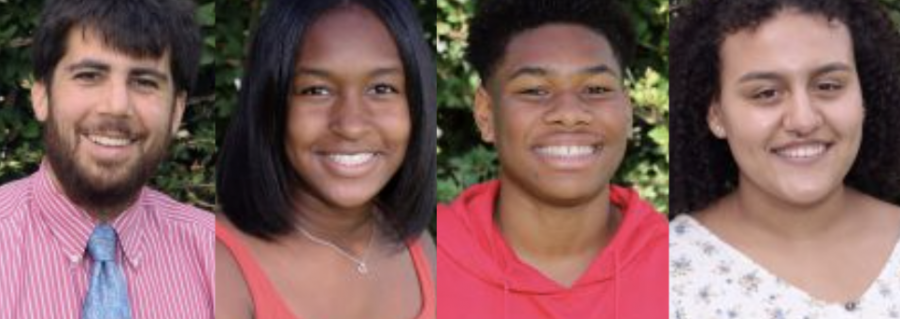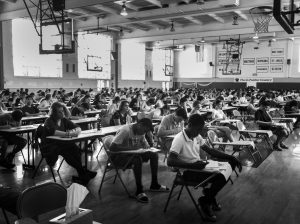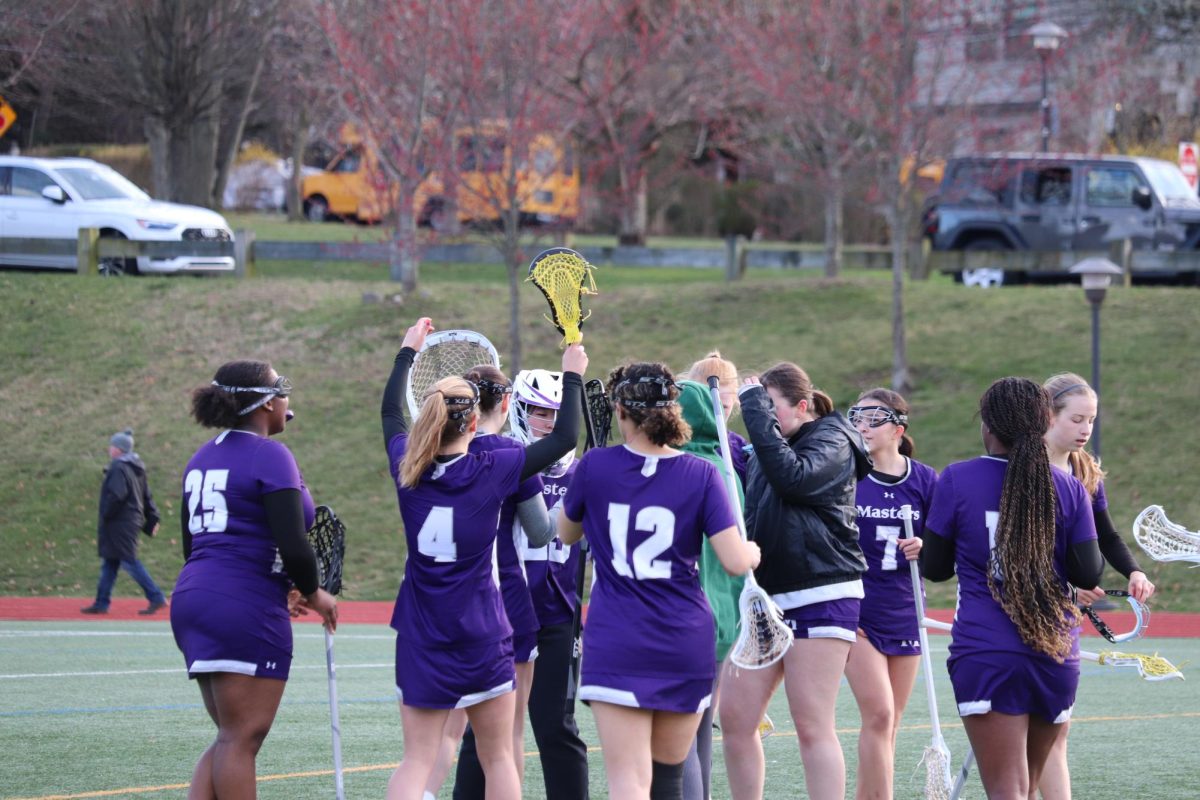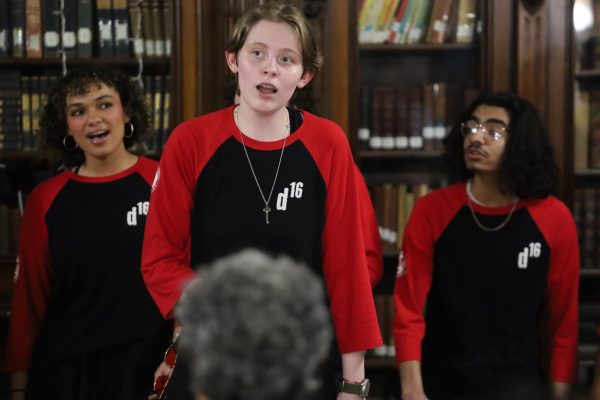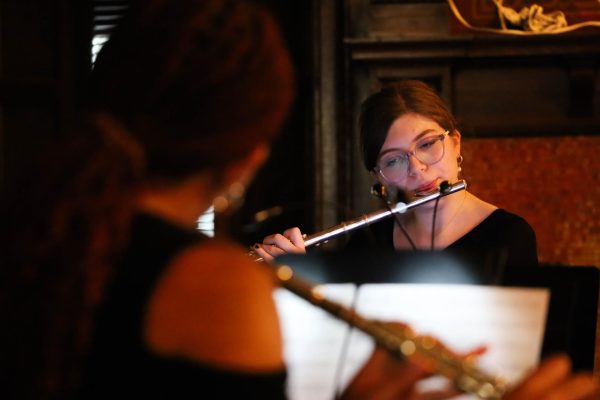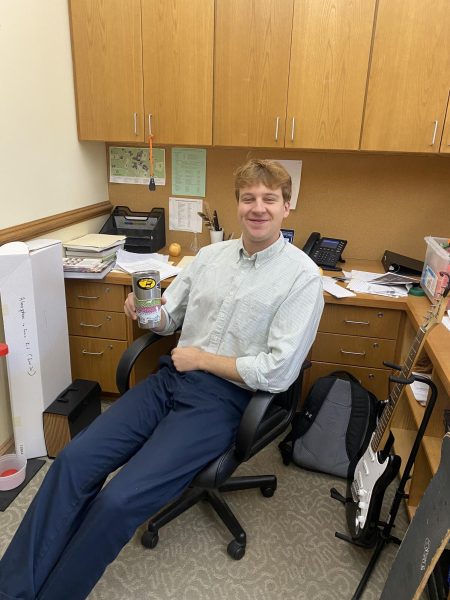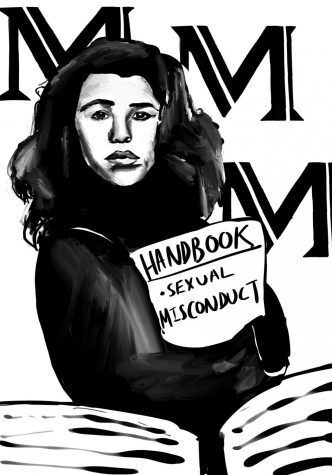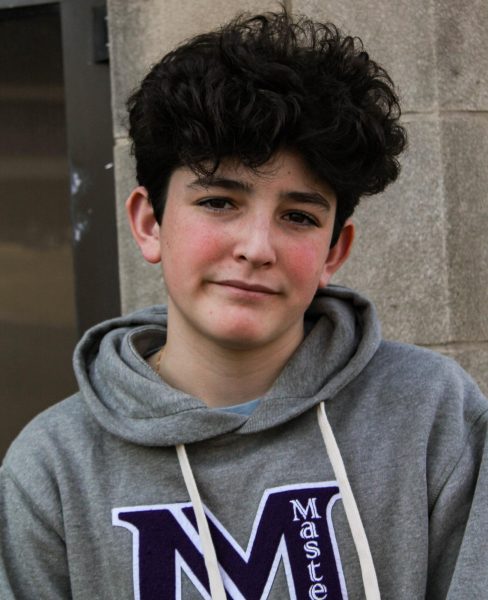A Better Masters Plan: Student Reactions
Eric Shear, a faculty member apart of the DEI committee far left. Students Briana Diaz’22, Maison McCallum’22, and Madison Blake’22.
November 12, 2020
“A Better Masters: An Action Plan for an Inclusive Community” was released over the summer, with the intention of helping the community become a more anti-biased and anti-racist institution. Reactions to the Better Masters plan have been mixed. The plan, created by a team of parents, faculty, alumni, and administrators was partially in response to the @blackattms, or ‘Black at Masters’ Instagram account, which allowed students and alums to submit their personal experiences and confrontations with racism at Masters.
The plan addressed multiple issues in our school environment and left students of color hopeful there would be changes made which would help improve the inclusivity of the community.
Junior Madison Blake who has been a major advocate for change in regards to the diversity and equity at Masters said, “I urge people not to think that this plan is going to make Masters a completely anti-discrimination school. No school is perfect, and no person is perfect, though by Masters enforcing this plan, as a student of color, it will help me know they care what I think and that they take in mind our experiences.”
As Masters has returned to offering in-person classes again a student has expressed disappointment with the lack of changes and hope they will become more visible soon.
Junior Briana Diaz, a member of Diversity Ambassadors, a group of students who help promote racial justice at Masters said, “It’s important to continue to talk about social justice news and racial inequality, in order to further educate students about what is going on in our world and make this more a part of our daily routine. We want to see a change in our education.”
Gaps in the curriculum have been an area of particular frustration to Students who have expressed concerns over a need for revision in the history books that do not cover certain instances of racism in history. When the plan was initially released students were disappointed to see that there were no new classes or adaptations to classes added to the curriculum.
Maison McCallum a current Junior who is a member of Diversity Ambassadors said “A lot of history texts book touch on slavery and go through the facts and then move on, I would like to dig deeper into this in our classes, a more in-depth reading of our history, what really happened in our country, the trauma and tragic events a way to do this would be to offer different classes, learning about African history and also learning about what is happening today, current events and what we can do as teens to help out.”
As McCallum above expressed his concerns in our curriculum, Freshmen Arjun Ratan a member of the DEI student task force has a push for positive changes “The school has done a better job of introducing more poc authors, for me I really enjoyed reading from a perspective of someone I could relate to.”
Eric Shear, a member of the faculty DEI task force in response to this explained as a school we need to look to incorporate DEI work into every class “Students and faculty alike have a shortsighted view of Diversity Equity and Inclusion is, it is not just ‘a history issue’ or ‘an English issue,’ it is something that should be discussed in every class and that is something we will continue to push for.”
Blake said, “They need to show their students of color that their lives matter, their experiences and history matter and that they are important.”
Diaz expressed she has noticed certain important issues missing to this date, including a push for faculty diversity, and disciplinary actions in cases involving racism.
“We have seen over the summer that many faculty have come in, most of them are people of color which is great, but this needs to continue to happen. We see on the ‘Black at Masters’ page that a lot of community members are being called out and our school is mostly run by white males so an improvement in more faculty diversity is needed,” she said.
In response to Diaz’s argument above Shear said, “We have recruited more faculty of color and we are going to continue to do so, we need our faculty and administration to more accurately reflect our student body.”
The Statement of inclusion states: “The Masters School prides itself on being a diverse, inclusive community that honors and understands the uniqueness of each individual, allowing their perspectives to be valued and their needs to be understood.” Through creating this plan students interviewed believe that Masters has taken a step in the right direction in order to continue to achieve this goal, but that continuous change is necessary.
Shear responded that DEI work takes time, “For diversity equity and inclusion, changes occur over time they it will take a few years before the effects of this are really felt, we are going to look at what we teach and how we teach it and incorporate more DEI in terms of content-wise and pedagogy.”
Blake said, “ I want to be able to sit in a classroom and know that my voice matters and my opinions matter just like everyone else’s. I won’t be shut down. I won’t be called rowdy or overly upset just because I am passionate about a topic. I want to be able to share the same or different opinions and be heard by my peers.”



